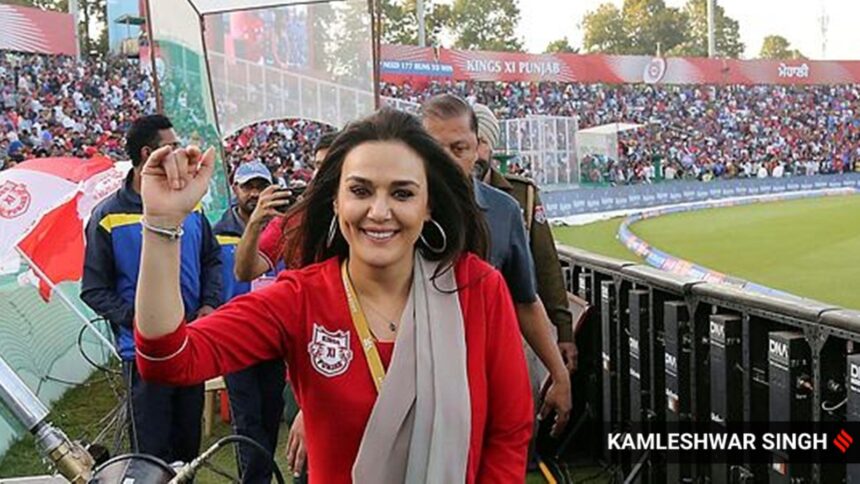Preity Zinta, co-owner of the IPL franchise Punjab Kings (PBKS), recently responded questioning her influence on cricketer Glenn Maxwell’s performance.
Maxwell, who was bought for ₹4.2 crore in the auction, struggled to deliver for the team, scoring only 48 runs and taking four wickets in seven matches before a finger injury ruled him out of the tournament. On Tuesday, the actor gave a fitting reply to a user asking her a distasteful question during an interaction session on X. The user wrote: “Ma’am Maxwell ” (Ma’am, Maxwell plays badly for your team because he didn’t get married to you, right?)
Calling the comment sexist, Zinta didn’t hold back in her response. She wrote on X: “Will you ask this question to the male team owners of all teams, or is this discrimination just towards the women? I never knew how difficult it is for until I got into cricket,” she wrote.
She added, “I’m sure you asked this question out of humour, but I hope you can actually look at your question and understand what you are trying to say, because if you really understand what you’re trying to say, it’s not pretty! I think I have earned my stripes by working very hard for the past 18 years, so please give me the respect I deserve and stop with the gender bias. Thank you.”
However, the actor later clarified that she was not angry at anyone for their comments. Taking to X, she wrote: “Just to let everyone know I didn’t slam anyone in this chat nor did anyone piss me off! I’m old enough to understand there are different types of people in the world, and I’m a big girl – I can handle all types of comments. Interesting conversations/comments stay with me while any negativity goes through a quick mental delete.”
Gurleen Baruah, existential psychotherapist at That Culture Thing, “When women step into male-dominated leadership roles, they often encounter a series of barriers that go beyond just . One of the most pervasive challenges is the ‘boys’ club’ mentality, where networks and decision-making circles are predominantly male, making it harder for women to gain equal footing. Inherent misogyny and unconscious biases often lead to women being seen as outsiders or less credible, regardless of their achievements.”
There’s also the double-bind bias: if a woman is assertive, she’s labelled too aggressive; if she’s collaborative, she’s seen as weak. “On a deeper level, societal conditioning — shaped by centuries of patriarchal norms — still influences perceptions of leadership, where authority is subconsciously linked with masculinity.”
The tendency to scrutinise women leaders in personal and emotional terms stems from inherent bias — a deep-rooted perception that associates leadership with masculinity. “This bias reflects a larger societal belief that men naturally balance work and family better, while women are seen as less reliable when family is visibly part of their lives,” says Baruah.
Such assumptions undermine women’s professional identity by framing them through a personal lens, making them appear emotionally driven or distracted, rather than competent and strategic. This not only affects how they’re perceived but also impacts their confidence and career progression.








